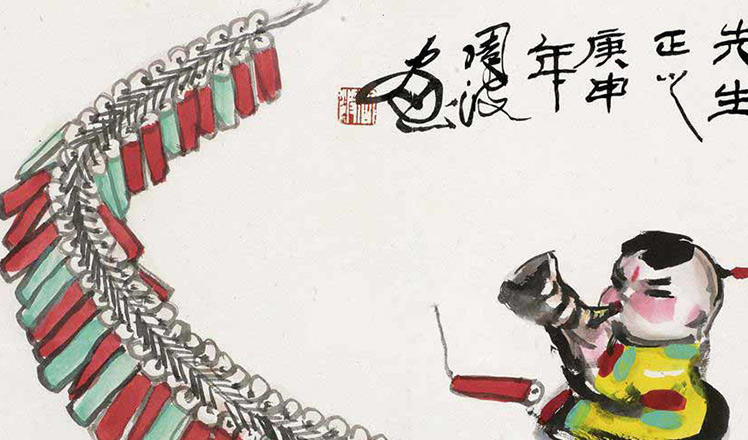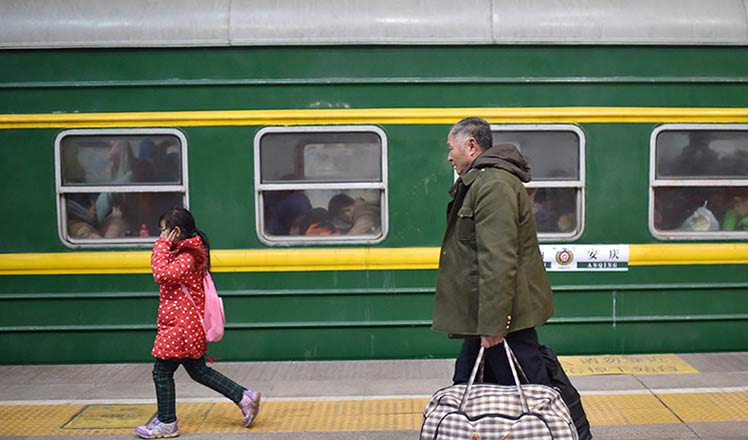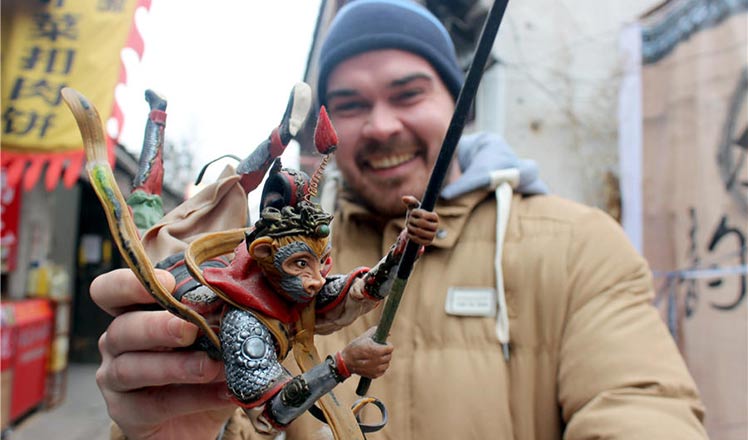Villagers carve way through mountain to rid poverty
Updated: 2016-01-06 22:13
(Xinhua)
|
||||||||
GUIYANG -- Together with her fellow villagers, Deng Yingxiang used hammers and shovels to cut through a mountain, carving a path from her isolated village to the outside world.
Mahuai Village, in Southwest China's Guizhou province, is surrounded by mountains. Villagers have been living in poverty for generations. The nearest road is only a few hundred meters away as the crow flies, but it takes over two hours to trek there.
Born in a neighboring village, Deng married a man from Mahuai in 1990. On her wedding day, the 18-year-old Deng spent several hours climbing over the mountains to get to her husband's home. On her first night in the village, she was impressed by the darkness. "There was no electricity and even the moonlight was blocked by the mountains," she recalled.
Villagers would get up around 4 a.m. to take their vegetables to market but it took so long to get there that their produce was past its best when they arrived. Large amounts of fruit would be left to rot since no vehicle could get into the village to transport them. To build a new home, villagers had to carry construction material on their backs, one basket after another.
Children suffered the most. The nearest primary school was, of course, over the mountains and Deng's son and daughter spent four hours on the road every day.
"I knew the situation had to be changed, but I had no clue how," she said.
Change was in the air in 1999 when the village was earmarked for connection to the national power grid, but the mountains got in the way as usual.
When villagers started to look for easier ways across, a small cave was discovered and they decided to embark on a painstaking endeavor to dig the cave into a tunnel
"It was narrow, and we had to kneel down or even lie on our stomaches to cut the stones," Deng said. "After cutting for a while, we would sit on the ground and pass the stones and sludge out."
The ordeal lasted two years. At midnight in 2001, Deng, who was still working, suddenly heard shouting coming from the cave, "We're through! We're through!" Tears running down their faces, the villagers celebrated with a drink.
The 200 meter passage shortened the journey to the road from two hours to 15 minutes. Poles were sent to Mahuai through the tunnel and the village was finally connected to the grid.
Easier access to the outside world opened the villagers' eyes. Many left for jobs in the cities. In 2006, Deng walked through the tunnel and travelled to Fujian to work in a shoe factory.
In 2010, she went back home for her daughter's wedding. It was raining. Her daughter, in white wedding dress, had to walk through the passage knee-deep with dirty water.
"The path was still too narrow, so I decided that we should widen it into a tunnel which can allow the passage of cars," she said.
She started the project by herself with hammers and chisels, but more and more joined her. She went to the local government and asked for support.
"With the money, cement and explosives from the government, we worked day and night," she said. By the summer of 2011, the tunnel was 4 meters wide. Time to the road was cut from 15 minutes to about three.
Development has been rapid ever since. Roads were laid down in the village and over 80 percent of residents have moved into new houses. Some have bought farm vehicles and cars.
Deng, now head of Mahuai village, has been leading the villagers to planting medicinal herbs. "Leaving the village is not the ultimate solution to poverty. The village cannot become rich without a pillar industry so we are trying to develop specialty agriculture," she said.
"Reliable transportation is a powerful support for agricultural development," she added.
- A glimpse of Spring Rush: little migrant birds on the way home
- Policy puts focus on genuine artistic students
- Police unravel market where babies are bought, sold as commodities
- More older pregnant women expected
- Netizen backlash 'ugly' Spring Festival Gala mascot
- China builds Mongolian language corpus
- 2 Chinese nationals killed, 1 injured in suspected bomb attack in Laos
- New York, Washington clean up after fatal blizzard
- 'Plane wreckage' found in Thailand fuels talk of missing Malaysian jet
- Washington shuts down govt, NY rebounds after blizzard
- 7 policemen, 3 civilians killed in Egypt's Giza blast
- Former US Marine held in Iran arrives home after swap

 Drone makers see soaring growth but dark clouds circle industry
Drone makers see soaring growth but dark clouds circle industry China's Zhang reaches Australian Open quarterfinals
China's Zhang reaches Australian Open quarterfinals
 Spring Festival in the eyes of Chinese painters
Spring Festival in the eyes of Chinese painters
 Cold snap brings joy and beauty to south China
Cold snap brings joy and beauty to south China
 The making of China Daily's Tibetan-style English font
The making of China Daily's Tibetan-style English font
 First trains of Spring Festival travel depart around China
First trains of Spring Festival travel depart around China
 Dough figurines of Monkey King welcome the New Year
Dough figurines of Monkey King welcome the New Year
 Ning Zetao, Liu Hong named China's athletes of the year
Ning Zetao, Liu Hong named China's athletes of the year
Most Viewed
Editor's Picks

|

|

|

|

|

|
Today's Top News
National Art Museum showing 400 puppets in new exhibition
Finest Chinese porcelains expected to fetch over $28 million
Monkey portraits by Chinese ink painting masters
Beijing's movie fans in for new experience
Obama to deliver final State of the Union speech
Shooting rampage at US social services agency leaves 14 dead
Chinese bargain hunters are changing the retail game
Chinese president arrives in Turkey for G20 summit
US Weekly

|

|








